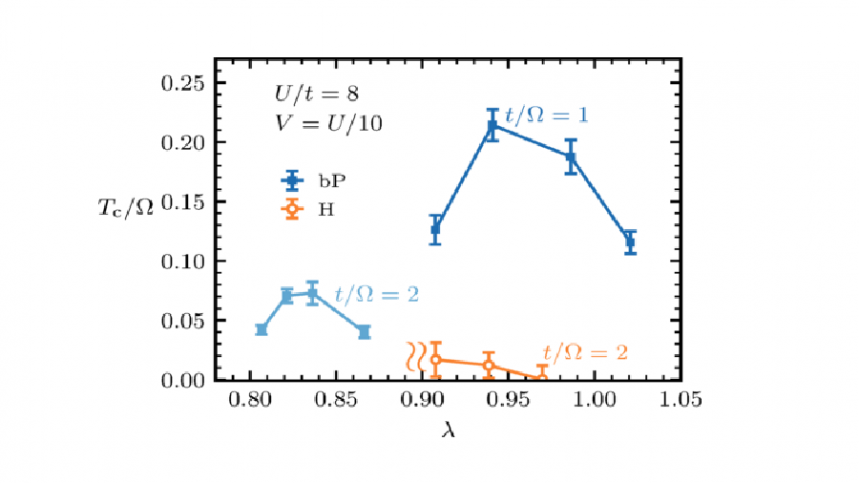Bipolaronic superconductivity out of a Coulomb gas
Employing an unbiased sign-problem-free quantum Monte Carlo approach, we investigate the effects of long-range Coulomb forces on Bose-Einstein condensation of bipolarons using a model of bond phonon-modulated electron hopping. In the absence of long-range repulsion, this model was recently shown to give rise to small-size light-mass bipolarons that undergo a superfluid transition at high values of the critical transition temperature Tc. We find that Tc in our model, even with the long-range Coulomb repulsion, remains much larger than that of Holstein bipolarons and can be on the order of or greater than the typical upper bounds on phonon-mediated Tc based on the Migdal-Eliashberg and McMillan approximations. Our work points to a physically simple mechanism for superconductivity in the low-density regime that may be relevant to current experiments on dilute superconductors.
Read the whole article by Sous et al. in Physical Review B.
